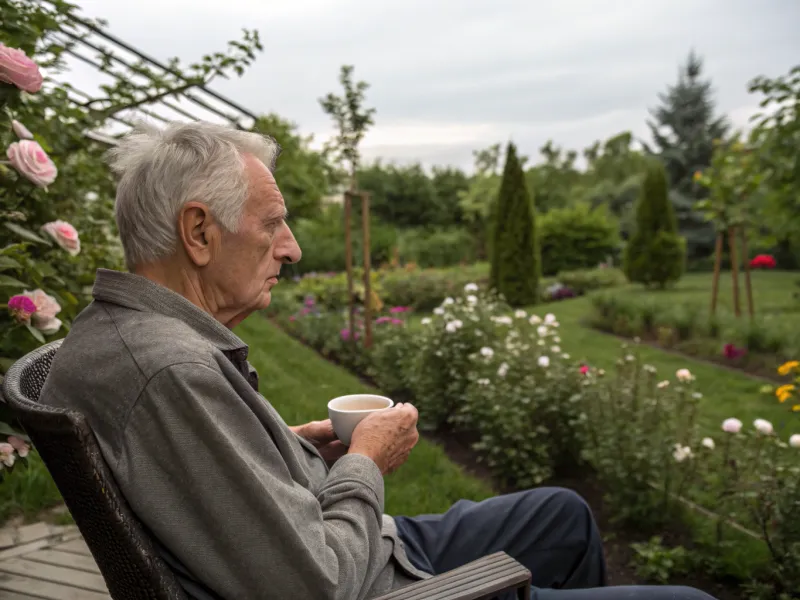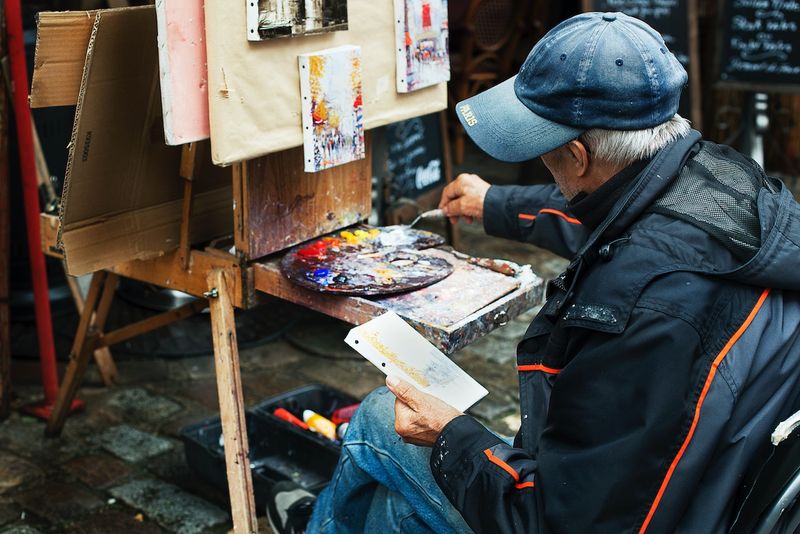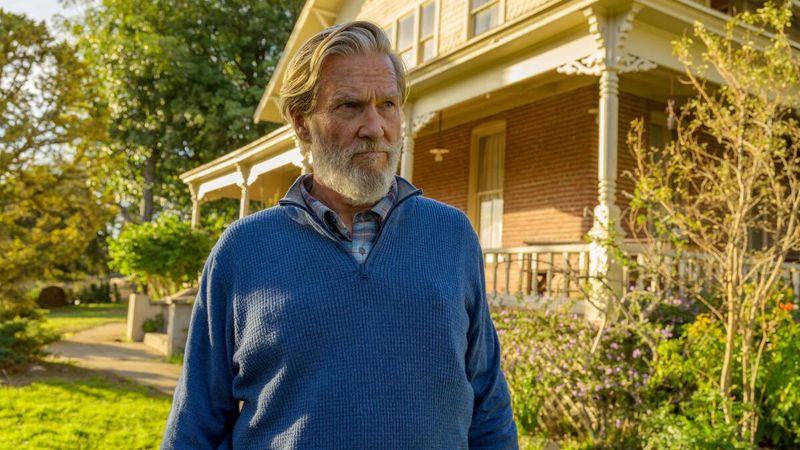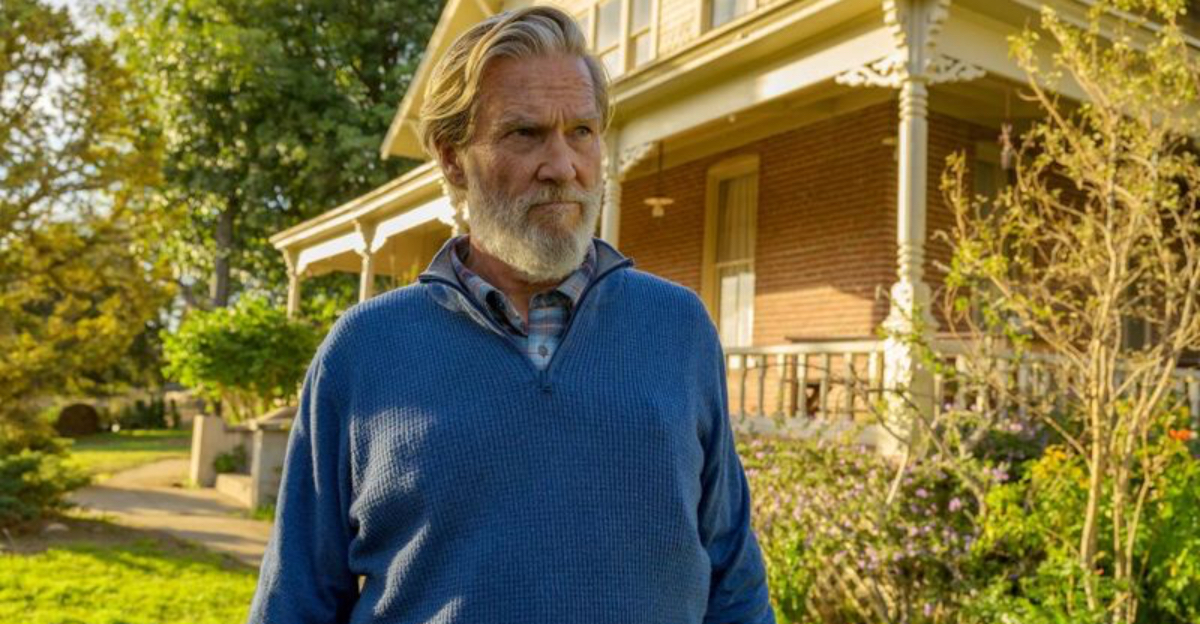30 Surprising Reasons So Many Older Men Are Choosing Solitude Over Social Life
He’s not at the neighborhood BBQ.
He skipped the golf invite.
He’s not texting back. And no, he’s not angry—he’s just… gone quiet.
More and more older men are opting out of social life—not out of bitterness, but out of burnout, disappointment, or even peace.
They’re not always lonely. But they are choosing solitude—and here are 30 real reasons why.
1. They were never taught how to express emotion

Vulnerability feels like a foreign language, not something they can speak comfortably. This emotional barrier leads them to retreat inward. They navigate life with an emotional map that’s missing crucial landmarks. Often, the silence isn’t cold but rather filled with unsaid words and untaught expressions.
This solitude becomes a safe haven, a space where there’s no need to decode emotions. It’s not a rejection of social life, but a refuge from an uncomfortable emotional landscape they’ve never been equipped to handle.
2. They’re exhausted from decades of emotional suppression

After years of pushing emotions down, they find solace in solitude. Imagine carrying a weight for decades and finally putting it down—that’s the peace they find in being alone.
This isn’t a choice made from anger but from a need to rest and recover. It’s a release from the exhausting facade of being perpetually “fine”. Solitude offers a sanctuary where they can be themselves without the pressure to maintain appearances.
3. They don’t know how to build or maintain emotional connections

Friendships often revolved around activities rather than deep, emotional connections. This lack of depth makes solitude appealing. It’s not that they lack interest in connections; it’s a missing skill set.
The solitude is a space where they’re not failing at social expectations. It’s a quiet nod to what they know they lack but don’t know how to achieve. The silence replaces the noise of misunderstood social cues and expectations.
4. They’ve lost interest in surface-level socializing

Small talk doesn’t feed the soul, and opportunities for real conversations seem scarce. The depth they crave is missing in polite chatter. They seek meaning over mere interaction.
Their choice of solitude isn’t due to disdain for society but a desire for authentic connections. The quiet of solitude is more fulfilling than the noise of hollow dialogues. It’s a search for substance over quantity in interactions.
5. They were told to be “strong and independent” their whole lives

Independence was instilled as strength, making asking for connection feel like weakness. Solitude feels like an achievement rather than isolation. They’ve internalized self-reliance, making solitude a chosen companion rather than a sentence.
It’s not loneliness but a lifetime habit of self-sufficiency. Their quiet moments are not cries for help but a testament to the strength they’ve always valued.
6. They’ve experienced betrayal or emotional abandonment

Past betrayals leave scars that make retreating inward more appealing. Solitude becomes a protective shield against further emotional wounds. This choice isn’t about bitterness but preserving what’s left of their peace.
Emotional retreats are safer than risking trust once broken. In their quiet moments, they find a refuge where past pains can’t reach them. Their silence speaks volumes of lessons learned the hard way.
7. They fear being judged for who they’ve become—or who they’re not anymore

Changes in identity can make social interactions daunting. The fear of judgment keeps them at arm’s length from social circles. Solitude offers a safe haven where their evolving identity is accepted without scrutiny.
It’s not a withdrawal from life but a choice to be free from others’ expectations. In solitude, they find acceptance of who they are now, without the fear of judgment.
8. They’ve retired—and feel a loss of identity

Retirement strips away the structure and status work provided. In solitude, they face the challenge of redefining themselves. The quiet isn’t about hiding but about searching for a new purpose.
It’s a period of reflection, of finding new joys and roles beyond a career. In solitude, they navigate the complex transition from worker to a new identity, one sip of tea at a time.
9. They’ve become empty nesters and feel unneeded

With children grown and gone, the house feels emptier without the bustle. Solitude fills the space left by their absence. The silence isn’t neglect but a transition. In solitude, they come to terms with a new stage of life.
It’s a time to rediscover oneself and find fulfillment beyond the role of a parent. They embrace this quiet phase as an opportunity for personal growth.
10. They’ve outlived many of their friends

Loss after loss adds up, and it’s easier to stay home than risk more grief. Solitude becomes a space to honor memories without the pain of new losses. It’s not about avoiding life but preserving cherished moments.
In the quiet, they find a way to keep departed friends close. Solitude allows for reflection and remembrance without the fear of further heartbreak.
11. They feel out of place in a changing social world

Modern conversations on emotions and identity feel foreign. Solitude is a retreat from a world that seems to have moved on without them. It’s not a refusal to engage but an acknowledgment of feeling out of sync.
In the quiet, they maintain a sense of self amidst rapid changes. Solitude provides stability in a world that feels increasingly unfamiliar and overwhelming.
12. They’re physically tired

Health issues and chronic pain make socializing feel like work. Solitude is a choice for rest and recovery. It’s about preserving energy for what truly matters. The quiet isn’t loneliness but a necessary reprieve.
Solitude provides a space where they can recharge without the demands of social expectations. It’s a self-care strategy, prioritizing well-being over endless activity.
13. They’re quietly struggling with depression or anxiety

Isolation is a known companion in mental health struggles. Solitude feels safer than admitting vulnerability. It’s not a lack of desire for connection but a fear of being misunderstood.
Silent battles are fought behind closed doors, where solitude offers a semblance of control. It’s not about pushing people away but protecting oneself from further pain. In the quiet, they find moments of peace amidst the chaos.
14. They’ve stopped relating to people their age

Generational gaps widen over time, leaving them feeling isolated even among peers. Solitude becomes a choice when common ground is hard to find. It’s not about disinterest but a struggle to connect with changing dynamics.
In solitude, they find comfort without the pressure to adapt. The quiet is a respite from conversations that feel distant and disconnected. It’s a personal space where they can be themselves.
15. They feel misunderstood by women—and disconnected from men

Misunderstanding creates barriers, leading them to withdraw from both genders. Solitude is a refuge from the complexities of relationships. It’s not a lack of desire for connection but a way to avoid further miscommunication.
In the quiet, they find clarity and peace. It’s a space where they can exist without the fear of being misunderstood. It’s a choice for harmony over conflict.
16. They’ve been through a painful divorce or separation

Rebuilding trust feels impossible after heartache. Solitude is a sanctuary from the emotional turmoil of past relationships. It’s not avoidance but self-preservation.
In the quiet, they mend what was broken. Solitude offers healing without the risk of reopening old wounds. It’s a journey towards peace, where the sound of the waves is more comforting than the echoes of past arguments.
17. They stayed in relationships out of duty, not love

Duty-bound relationships leave emotional voids. Solitude is chosen for the freedom it brings. It’s not loneliness but relief from roles that felt more like prisons.
In the quiet, they find a sense of self previously overshadowed by obligations. It’s a new chapter where peace is written in the rustle of leaves rather than the noise of unmet expectations.
18. They regret past choices—but don’t know how to talk about it

Regrets are easier to carry alone than share. Solitude provides a space where they can contemplate without judgment. It’s not about avoiding responsibility but processing decisions in their own time.
In the quiet, they find the freedom to explore what could have been—and space for introspection without the weight of outside opinions. It’s a journey toward understanding and self-acceptance.
19. They’ve carried the emotional weight of others for too long

After years of being the emotional anchor, solitude is a break they deserve. It’s not loneliness but liberation from others’ burdens. In the quiet, they find breathing room.
Solitude offers a chance to prioritize their own needs, free from the weight of others. It’s about reclaiming space for themselves and finding peace in the simplicity of a sunset. The silence is not empty but filled with newfound freedom.
20. They never learned how to receive love or support

Receiving love feels awkward when it’s never been a part of their narrative. Solitude is a shield from the vulnerability of accepting support. It’s not about rejection but self-preservation.
In the quiet, they navigate a world where giving always felt safer than receiving—a gentle space to explore the unfamiliar terrain of accepting care and support without pressure.
21. They equate aging with fading relevance

Aging feels like a slow fade to the background. Solitude isn’t about bitterness but acceptance of a changing role. In the quiet, they contemplate their place in the world.
Solitude provides a space to redefine relevance on their own terms. It’s not withdrawal but a reimagining of identity as they age. The rocking chair becomes a throne of reflection rather than a seat of exclusion.
22. They finally feel free from pressure to perform

No more roles to play, no more masks to wear. Solitude is freedom from the expectations of others. It’s not about hiding but embracing authenticity. In the quiet, they find space to be themselves, unburdened by societal demands.
Spending time alone offers liberation and a chance to redefine self-worth. It’s a walk through nature where the only performance is in the rustle of leaves, not in the expectations of others.
23. They’ve learned to enjoy their own company

After years of being needed, solitude is soothing. It’s not loneliness but comfort in one’s own presence. In the quiet, they find joy in simple pleasures, like a morning cup of coffee.
Solitude offers a chance to rediscover themselves without the noise of others. It’s about finding contentment in one’s own company and the beauty in everyday moments.
24. They value simplicity and stillness over stimulation

Simplicity offers a refuge from the chaos of life. Solitude isn’t about avoiding others but finding peace in stillness. In the quiet, they appreciate the beauty of a simple sunset or the calmness of a lake.
It’s a space where stimulation isn’t needed for happiness. It’s about valuing the moments of stillness and the clarity they bring.
25. They’ve accepted that fewer—but deeper—connections matter

They don’t need a crowd, just meaningful connections. Solitude is a choice for quality over quantity. In the quiet, they find the space to nurture deep connections without the pressure of social obligations.
It’s a way to focus on what truly matters. It’s not about being alone but being selective about who they let into their lives.
26. They feel safer in routine than in risk

Routine offers comfort in predictability. Solitude isn’t avoidance but a preference for the known over the uncertain. In the quiet, they find safety in the familiar.
Solitude provides a stable environment where risks aren’t necessary for happiness. It’s about finding peace in routine and the security it brings. The path they walk alone is not lonely but lined with comfort and familiarity.
27. They finally get to choose themselves

Choosing solitude is choosing self. It’s not about rejecting others but embracing one’s own desires and needs. In the quiet, they find liberation from societal expectations.
They get a chance to prioritize themselves for the first time. It’s about finding joy in self-discovery and the freedom it brings. The view from the hilltop is not one of isolation but of endless possibilities and self-acceptance.
28. They’re not angry. They’re just at peace.

Peace isn’t about ignoring the world but finding harmony within. Solitude is a choice for inner tranquility. In the quiet, they experience the serenity that comes from acceptance.
Solitude provides a space where anger doesn’t reside, only peace. It’s not loneliness but contentment with one’s own thoughts. The gentle act of feeding birds isn’t just a pastime but a reflection of a peaceful heart.
29. A Renewed Focus on Personal Hobbies

Spending time engaging in personal hobbies can be a delightful escape. For many older men, these hobbies offer a renewed focus and a break from societal demands. Whether it’s painting, gardening, or woodworking, these activities provide a sense of purpose and personal satisfaction.
The quietude of these pursuits allows for deep concentration and a meditative state, often leading to increased happiness and fulfillment. Rediscovering long-lost passions or exploring new ones can bring joy that social interactions sometimes lack. Embracing solitude through hobbies becomes a treasured part of their day-to-day lives.
30. The Desire for Autonomy and Control

Autonomy becomes increasingly important with age. Many older men choose solitude as a way to maintain control over their lives. In solitude, they find freedom from obligations and the chance to live life on their own terms.
This independence enables them to make decisions without external pressures or expectations. Enjoying a day at the park or crafting an itinerary without consulting anyone else becomes a cherished freedom. In solitude, they might find empowerment and a renewed zest for life, reveling in the simple pleasure of being the master of their own time.
See also: 17 Things You Should Know Before Marrying an Older Man and a Few Surprising Truths No One Tells You







